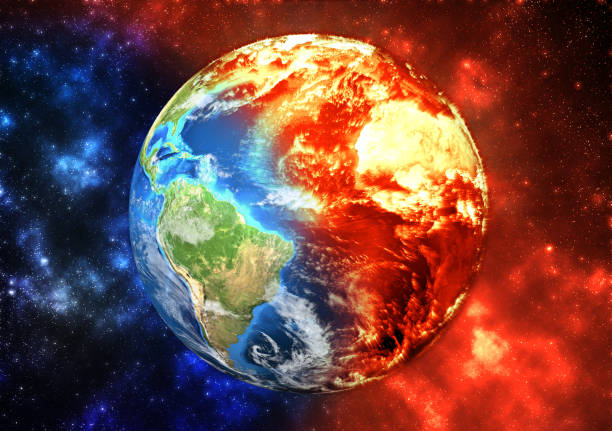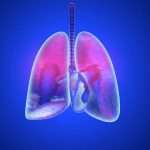
Climate Change, we’ve heard of the effects it possesses, we’ve heard of the chaos it can ensue and with time we’ve realized that it influences almost everyone on earth.
Then again, have we taken it seriously? Has enough been said about Climate Change as yet, do we know for real how significant the damage this can cause to the global ecosystem? Are our global leaders doing something about it?
Here is a fast fact, 68% of the International Public agree that if their government does not act on Climate Change, then they will fail their citizens. Goes to show how many people have held this in high importance. We have heard climate deniers stating that it is a natural phenomenon, but how natural was the drastic increase in the global carbon since the start of the industrial revolution? A growing rise that has led to our ozone layer getting punctured, our sea levels rising and our oceans being acidified. In all honesty, it sounds less natural and more anthropogenic.
In this article, we will delve into the affects of climate change and environmental degradation on the general population, but from a health perspective.
These affects can be sub-divided into Air, Water and Land.
Let us start with air; how its pollution relates to global health.
It’s stated that toxic gases impact our thinking ability, our rationale and can cause mental degradation, but what about Carbon Dioxide? It sounds harmless, doesn’t it? I mean, we breathe it out. Well, a rise in CO2 is co-related to mental degradation. If we continue on the trend of CO2 emissions, then by 2100 global levels will be so high that they can lead to a 25% reduction in the decision-making ability of Humans and a 50% reduction in our strategic-thinking ability.
Apart from that, another component of Air pollution is particulate matter, which handles 150,000 cases of type 2 diabetes in the US alone.
Air pollution particles are damaging the hearts and brains of people living in polluted cities, an example would be Pakistan, where the high levels of smog in Karachi and Lahore carry these particles. To put the severity of this into perspective, we have found particulate matter pollutants in the bloodstream of children as young as 3 years of age. Think about the diseases and the health conditions these children will go through, because of this.
Let us add a new discussion point to this, that of inequality. In 2020, we learnt about the black lives matter movement and how structural racism and inequalities still exist globally. Especially in the realm of health and medicine.
The percentage of US African-American children suffering from asthma (a disease aggravated by air pollution), is near twice as much as that of white children, and not just that, the death rate is also 10 times higher. If we take this stat and run with it in underdeveloped nations, we can easily see the comparison that people from slums or minority demographics will also fare worse against these medical conditions, and are definitely more susceptible to contracting them.
This is something that Climate Justice tries to cover, ensuring that those of lesser status do not suffer more from climate change. More factual examples of such an occurrence are: 1 in 4 African Americans live within 1 Mile of a polluted landfill site, that’s an example of how colored communities live in undesirable areas. How does that affect them? Well, less desirability of a location not only links to economic oppression but also a lack of access to developed healthcare facilities, lesser availability resources and quality transportation. In the event of a public health disaster, which is possible because of the proximity of these communities to health-compromising industries, all of this can act as a recipe for disaster. The less healthy baseline of these people can turn potential epidemics to syndemics, wreaking havoc.

Now let us move back to environmental degradation but from water pollution.
You’ve probably heard of waterborne infectious diseases like Lyme, Cholera, Typhoid or even the Brain-Eating Amoeba and how they have taken the lives of many human beings nationally and globally. How does this link with Climate Change?
Over two-thirds of waterborne diseases have extreme precipitation events preceding them, events that are getting more and more chaotic every year because of climate change. Notice how Karachi and Sindh are suffering from extreme rainfall in the current monsoon season. There isn’t a shred of doubt that this will lead to various infections and disease outbreaks because of the stagnated water. Outbreaks, which the poor and those suffering from inequalities shall suffer the most from.
Common examples of such predictably unpredictable outbreaks are Zika, Dengue, Malaria, these diseases have become threatening in the last decade or so because of heatwaves and warmer collected water bodies in tropical areas of the world i.e. Pakistan, India, Bangladesh etc.
It’s not just these diseases, with Climate Change there are warmer temperatures, which can lead to a growth between amoebas and their potency (the brain-eating amoeba is a scary reminder of such occurrences). Toxic Algae (Red Tide) and similar algal blooms can also occur more, which can lead to the possibility of a release in life-threatening neurotoxins that these species handle in our tropical climate.
In times of hurricanes, floods, wildfires and other major earth-shattering global events, we can easily see a worsening of these health issues because of degradation of air quality, water stagnation and a stark portrayal of health inequalities in the world. To add a cherry on top of these disasters, we are facing the biggest one of them all–A Pandemic.
COVID-19 is not a sole disaster, nay it is a Co-Disaster.
Climate Change operates in the same pattern as the virus, with the same vulnerable audience being the most susceptible. That means people of colour, people of low income, and people from less developed nations are high in the vulnerability index of these issues. Their susceptibility, similar to the pandemic, is greater than those who are privileged or have more resources to protect them. COVID-19 can is considered a war in the domain of public health, but it has also operated as a mirror. Inequalities within and between countries have been exposed. We’ve seen how taxes on consumption and pricing patterns proved to regressive; Richer folk did not suffer the brunt of the pandemic price hikes as much as people belong to poorer backgrounds, forcing those who are already suffering to suffer more.
Now the question arrives, are we doing enough to fight this? To ensure such a tragic shake-down of our public health systems doesn’t repeat itself. With climate change looming around the corner, outbreaks and infections can become more and more common and a re-evaluation is crucial for survival. Sir Micheal Marmot, world-renown public health expert, talked about how when you’re sending people (especially those from poorer communities) back to the same conditions that made them sick, you’re essentially starting a cycle that won’t break. If you do not improve the healthcare facilities of that community, you will not make any progress. Analyze the social determinacies of health and mitigate them, offer education and training to those who have yet to receive it regarding sanitation and cleanliness.
If one community’s health system is being affected, with the level of movement in the 21st Century, one community will also affect another, COVID-19 proved that. In-fact these communities suffer from far worse than COVID; death by heart disease and diabetes is also becoming very common and shows weak communal immunity. With all of this research available, it is vital we do things differently and address the conditions that made everyone sick to ensure this disaster doesn’t repeat itself.
In the realm of health care, there’s an analogy. If something is hurting people or killing people, we must address it. We can prevent hurt. Let’s say there’s a person from an isolated community who comes with a rat-bite, you treat rat bite. But, let’s say ten people came from the same community. You don’t just treat that rat bite. You go out and get rid of the rat or rats that are causing the bites. If you don’t, the cases will increase and more damage will be done. Which further proves how we need to remodel our entire healthcare to address these inequalities.
This virus was the first major one in a long time. It shook the health care system to the core, but we have to be vigilant and realize that it isn’t the last one. With Climate Change, you have flash flooding which have proven to inundate various communities i.e. Karachi, 2020, how can you ask the locals of such slum areas to become socially distant and stay home when their own home is under-water? That’s why these communities are so vulnerable to not just the pandemic, but climate change. We have learnt that we have not learnt. There is a lot more homework to be done to strengthen and more resilient systems. We lived in an elusive dream that our public health can face any shock and stress, but this pandemic provided a sneak preview to how, if things don’t change, then we can easily put our existence under threat.
Humanity is a proud race. We consider ourselves to be at the top of the food-chain, to be the rulers of the planet. Health is a good measure of how well we are doing as a society, but if we look at the state of the world right now, it’s pretty noticeable that we’re failing as a species in a fight against an invisible threat. The United States has had its life expectancy drop, in the UK the life expectancies have stopped improving, these ties to a rise in health inequalities. Something was going on terribly wrong in society, and this virus just exposed it. This point, this very point in the history of humans, can prove to be the time we learn from our mistakes and address these hidden realities and problems in society. We ourselves improve, and we ourselves worsen them. COVID-19 has laid bare these cracks in our world, it showed how it doesn’t care about your walk of life or your color.
It’s prime time that these cracks in public health and environmental conditions, further amplified by Social Injustice, are made to heal. The social determinacy of health should not be co-related to racism, and the conditions of the environment and climate change should improve so the ones who can afford the losses the least do not suffer the most. We need to unite; every profession can play a part in bringing a change. Health is too important to just be left at the hands of doctors alone. These frontline heroes are doing their best, but while they fight against this virus, we have to activate ourselves and remodel society so that it prepares us for any future threat (Climate Change). Engineers, Social Scientists, Agriculturists, Policy Makers etc. they all can work together for the betterment of public health.
Everyone should be treated as an equal, if anyone is missing from the conversation–be it a community, a business, a profession, they all should be brought together to one table to work for issues around infrastructure, food scarcity, homelessness, everything that ties up to health and development and work to improve it.
We may now we fearing future waves of COVID-19, but if we delay climate action, there is a much bigger and scarier tsunamic of climate related diseases that are expected in future years. Alongside flattening the curve of the virus, we must flatten the curve of our carbon emissions and our wider ecological footprint. We must adopt a sustainable mantra in all fields of life and just realize that the limits of the planet cannot be adjusted or tampered with, it is we who must adjust.
![]()

Student of bachelors in Environmental Engineering at NUST, Islamabad. Currently working as an Officer with WWF-N Pakistan & leading their green schools program. Certified climate reality leader, trained by former US Vice President Mr. Al Gore and his climate reality project alongside having various other training certifications from organizations such as the Global Youth Biodiversity Network, WWF-N, The School of Leadership and the Oxford School of Climate Change.





This is so insightful. Thank you for sharing. Indeed an immediate climate action is needed!!